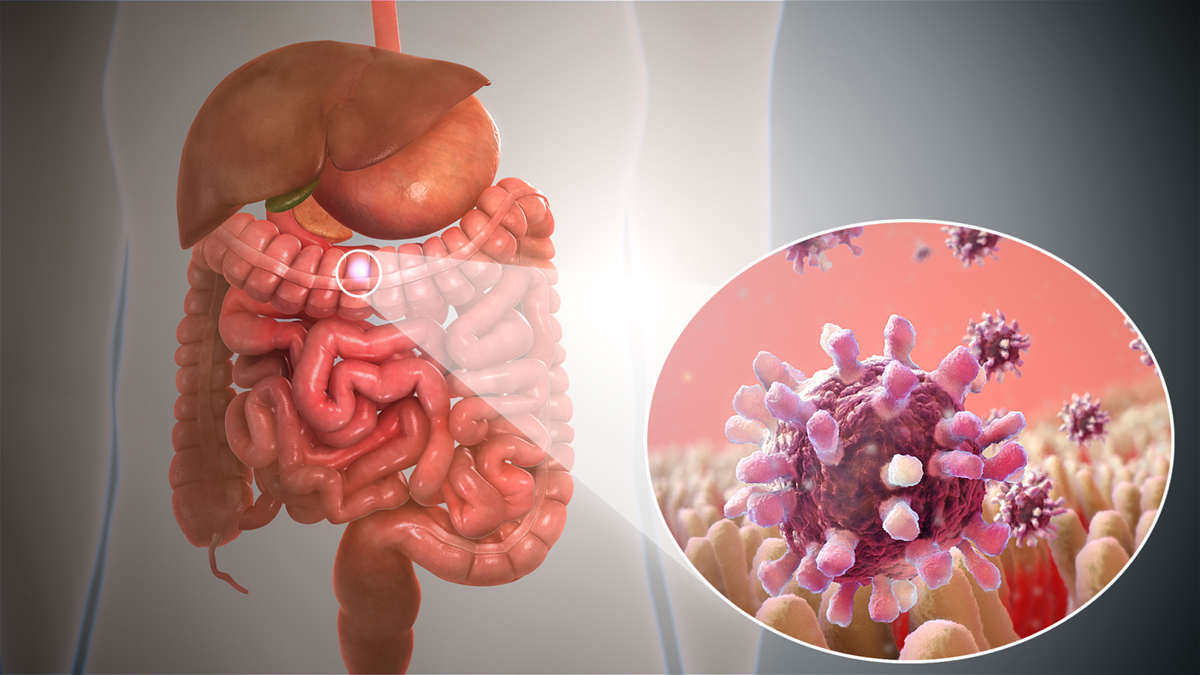
The condition known as gastroenteritis results in irritated and inflamed stomach and gastrointestinal tract and is usually accompanied by nausea, vomiting, diarrhea, and cramps and pains in the abdominal region. Gastroenteritis is sometimes confused with food poisoning or stomach flu due to vomiting and diarrhea. As a consequence of vomiting and diarrhea, valuable salts and minerals are lost. The immune system plays the essential role in deciding how severe the infection might get. The recovery in adults is usually easy, and affected individuals go back to their normal diet soon, though it can be more difficult for infants and elderly population, since the loss of electrolytes can lead to a potentially life-threatening dehydration.
Symptoms
Stomach and intestines are both affected by gastroenteritis, leading to vomiting and diarrhea, while other symptoms such as nausea, fever to 100°F (37.7°C), pains and cramps in the stomach, and bloating are also associated with the condition. Symptoms which are more severe include swollen or painful abdomen, fever higher than 101°F (40°C), the presence of blood in vomit or stools, vomiting that lasts over 48 hours and which is sometimes followed by dehydration, decreased sweating and urination, weakness and dizziness.
Common Causes
The condition is usually caused by viruses, bacteria, parasites or food-poisoning. Viruses and bacteria causing gastroenteritis are infectious and they are usually spread through food and water, or from person to person in cases of inadequate hand hygiene or contact with the excrement (e.g. when changing diapers). Other common causes of non-infectious gastroenteritis include chemical toxins, found especially in seafood, medications and heavymetals. Gastroenteritis caused by a viral infection usually lasts a day or two, unlike bacterial infection which tends to prolong the condition. Estimated 50%-70% of gastroenteritis cases in adults are caused by noroviruses, while rotavirus is the dominant agent of gastrointestinal symptoms in children. Astroviruses, adenoviruses and parvoviruses may also cause gastroenteritis.
As for bacteria, Escherichia coli, Salmonella, Shigella and Campylobacter are the leading causes of gastroenteritis. The bacteria Staphylococcus aureus produces the poisonous substance responsible for the same symptoms, while Salmonella is contracted from getting in touch with poultry and reptiles that carry the germs. Shigella is spread from human to human, whereas rare meat and unpasteurized milk can contain Campylobacter. After the use of antibiotics to treat an infection, patient’s intestines may be infested with Clostridium difficile bacteria as result ofovergrowth. Apart from these, gastroenteritis can sometimes be caused by parasites and protozoas found in drinking water and swimming pools.
Treatment
Vaccination and stopping the spread of the causing agent are the main preventive measures, but regular hand hygiene, properly stored and cooked food also count as prevention. Vaccines against Salmonella typhi, Vibrio cholerae, and rotavirus are now available, and it is recommended that infants get vaccinated against rotavirus, while travelers going to risky areas can undergo vaccination for S. typhi and V. cholerae.












_f_280x120.jpg)




Your thoughts on this
Loading...